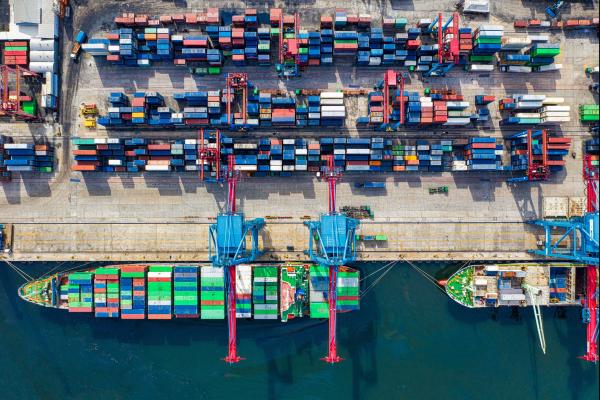By Verity Davidge, Director of Policy, Make UK
Supply chain volatility is fast becoming the norm
The UK’s manufacturing base has enjoyed little respite since it came under siege at the start of the pandemic. Business conditions have evolved since then, but not always favourably. While the end of the lockdowns in the UK and abroad, opened markets back up to trade, few predicted that global demand would exceed supply in such a way as to hamstring the sector’s recovery.
With volatile pricing, unknown or unacceptable lead times and geo-political sourcing implications, it’s little surprise that UK manufacturers have needed to place their supply chains under the microscope at extraordinarily short intervals. As manufacturers adapt at pace, supply chain uncertainty is growing.
Make UK research published earlier this year found that supply chain pressures will continue in the year ahead with the overwhelming majority of companies reporting such pressures in 2023 and looking ahead to 2024.
Manufacturers are building supply chain resilience
For UK manufacturers, this level of volatility poses a strategic risk to their business. As pandemics and global trade disruption have taken their toll on industry confidence, manufacturers are increasingly embedding resilience into their supply chains and driving new behaviours that will enable them to withstand these disruptions, manage the risk of further instability, and continue operations.
There is no one strategy that manufacturers are exploring, and each company will consider several factors, including the complexity of the supply chain as well as their proximity to disruption. The most common trends include the diversification of supply, increasing stock levels, and shortening of supply chains. Over 80% of manufacturing companies are diversifying their supply chains with a third of these opting to increase their supplier numbers to spread risk, while two in five have reduced their supply base.
Increasing trend towards reshoring
Even more firms are bringing manufacturing back home. Two-fifths of manufacturers surveyed said that they have increased their supply from the UK with a similar number saying they will do so in the coming year. Therefore, the concept of reshoring is fast becoming a reality.
While not fully defined, the concept of “friend-shoring” is gaining international interest as rather than focusing on bringing suppliers closer to home, companies are looking to grow suppliers in markets that are considered stable, reliable and have shared objectives; in other words: “friendly”.
While it is likely to be a growing trend in the future as markets continue to be volatile and manufacturers are incentivised to look at their supply chains in more detail, there is currently limited evidence that this is leading to change today.
Supply chain monitoring is firmly on the agenda
Supply chain monitoring is firmly on manufacturers’ agendas with 82% of manufacturers reporting that monitoring of their supply chain is critical to business.
However, there is a lag between citing its importance and using digital technologies that can enhance supply chain monitoring. While manufacturers are dipping their toes into data analytics and dashboards, more sophisticated technologies such as AI and machine learning, which could be even more impactful, are yet to be considered overall. There is a real missed opportunity here and it is vital that all stakeholders work together to help businesses understand the benefits.
And it’s not just the hesitant use of technology that is hampering the industry’s ability to truly unlock supply chain transformation; age-old challenges such as a lack of skills dominate, as well as a company’s inability to gain timely data.
The UK must remain a competitive place to do business
The energy crisis, access to raw materials, labour shortages, input costs and wider supply chain disruption have created unprecedented times for businesses across the globe. UK manufacturers have prioritised keeping their heads above the water and continue to meet demand when supply-side constraints make this challenging.
But this isn’t the only concern. A trend from this year’s Make UK report reveals that international companies are turning their backs on supply to the UK. In fact, almost half of companies said EU suppliers were now more cautious about the UK and a third of non-EU suppliers were also reticent – demonstrating that the UK’s image and trading relationship isn’t limited to partners in the EU.
It’s critical now that we ensure the UK remains a competitive place to do business, with access to the people, skills, digital and physical infrastructure needed to do so. We need to create a business environment that retains the existing manufacturing base and attracts new manufacturing business from across the globe.
To do this, we will need a long-term and robust industrial strategy with resilience, including supply chain resilience, built in to establish a bold and ambitious vision for UK manufacturing.
Want to learn more about supply chain resilience? Come along to the International Security Expo, which is taking place 26-27 September 2023 at Olympia London, where Resilience First has curated the programme for the Risk and Resilience Conference. Get your free pass here.



